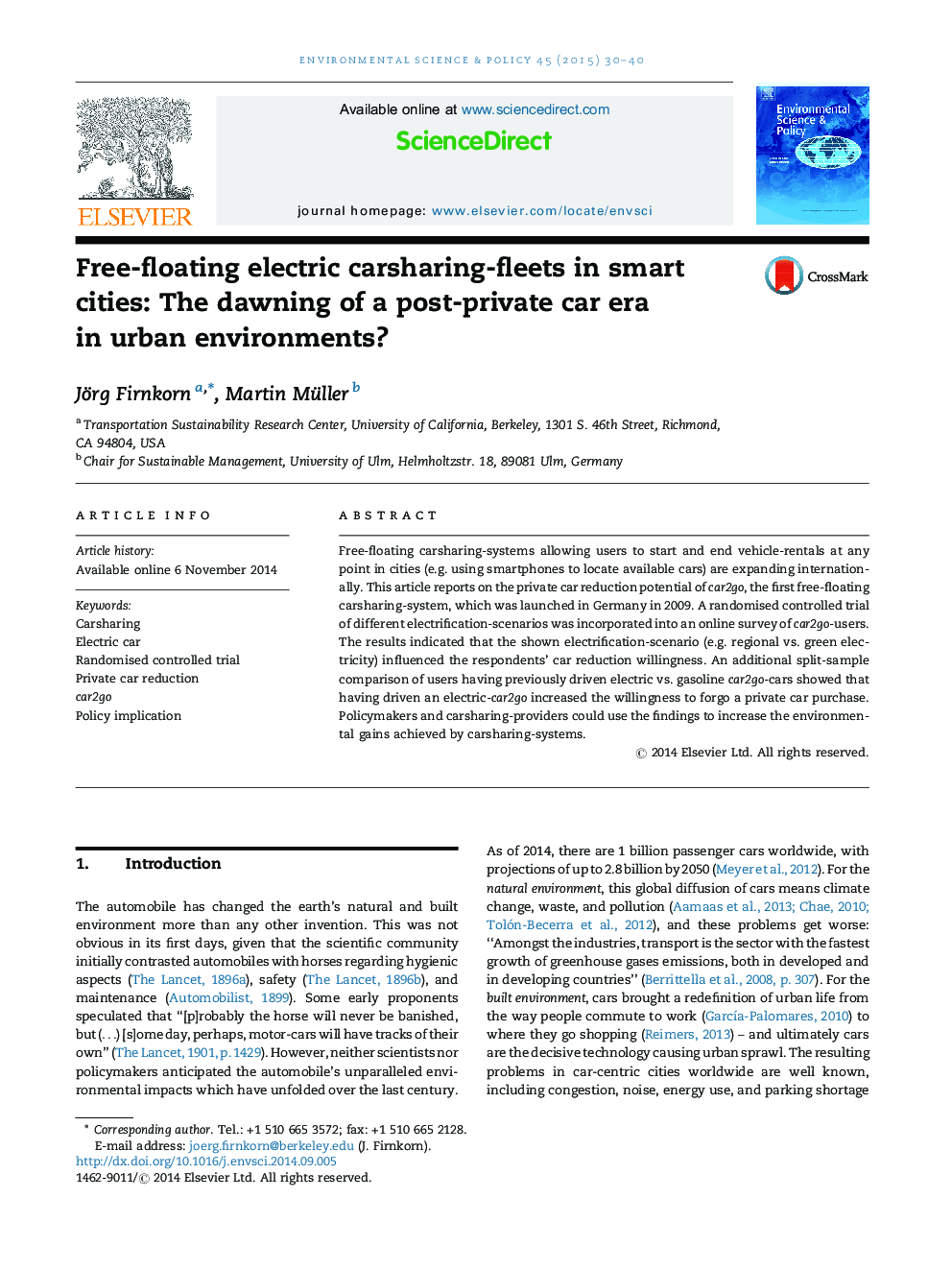| Article ID | Journal | Published Year | Pages | File Type |
|---|---|---|---|---|
| 1053530 | Environmental Science & Policy | 2015 | 11 Pages |
•Empirical study on the free-floating carsharing-system car2go.•Randomised controlled trial of different electrification-scenarios.•Split-sample comparison of users having driven electric- vs. gasoline-car2go-cars.•Having driven an electric-car2go increases the private car reduction willingness.•Environmental gains through carsharing can be improved by targeted policies.
Free-floating carsharing-systems allowing users to start and end vehicle-rentals at any point in cities (e.g. using smartphones to locate available cars) are expanding internationally. This article reports on the private car reduction potential of car2go, the first free-floating carsharing-system, which was launched in Germany in 2009. A randomised controlled trial of different electrification-scenarios was incorporated into an online survey of car2go-users. The results indicated that the shown electrification-scenario (e.g. regional vs. green electricity) influenced the respondents’ car reduction willingness. An additional split-sample comparison of users having previously driven electric vs. gasoline car2go-cars showed that having driven an electric-car2go increased the willingness to forgo a private car purchase. Policymakers and carsharing-providers could use the findings to increase the environmental gains achieved by carsharing-systems.
Graphical abstractFigure optionsDownload full-size imageDownload as PowerPoint slide
